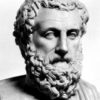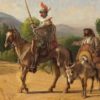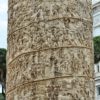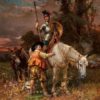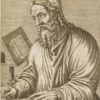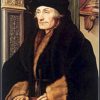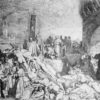The present essay is an attempt to assess Aristotle’s claim that man as “a political animal” made in his treatise The Politics. Obviously, such an assessment requires clear understanding of what the philosopher meant by his definition given three hundred years BC. And the only way to grasp the meaning of Aristotle’s writings is […]
